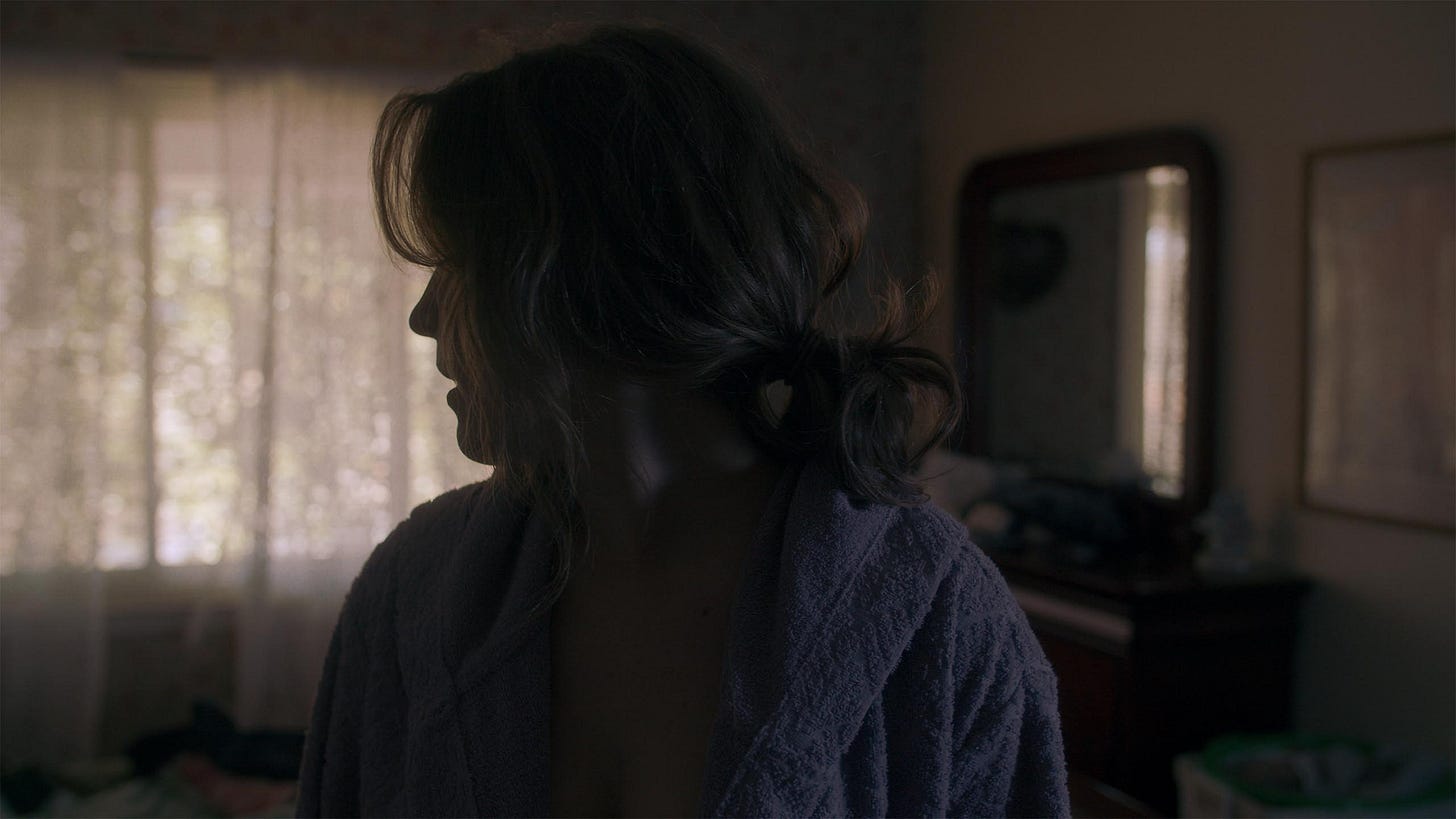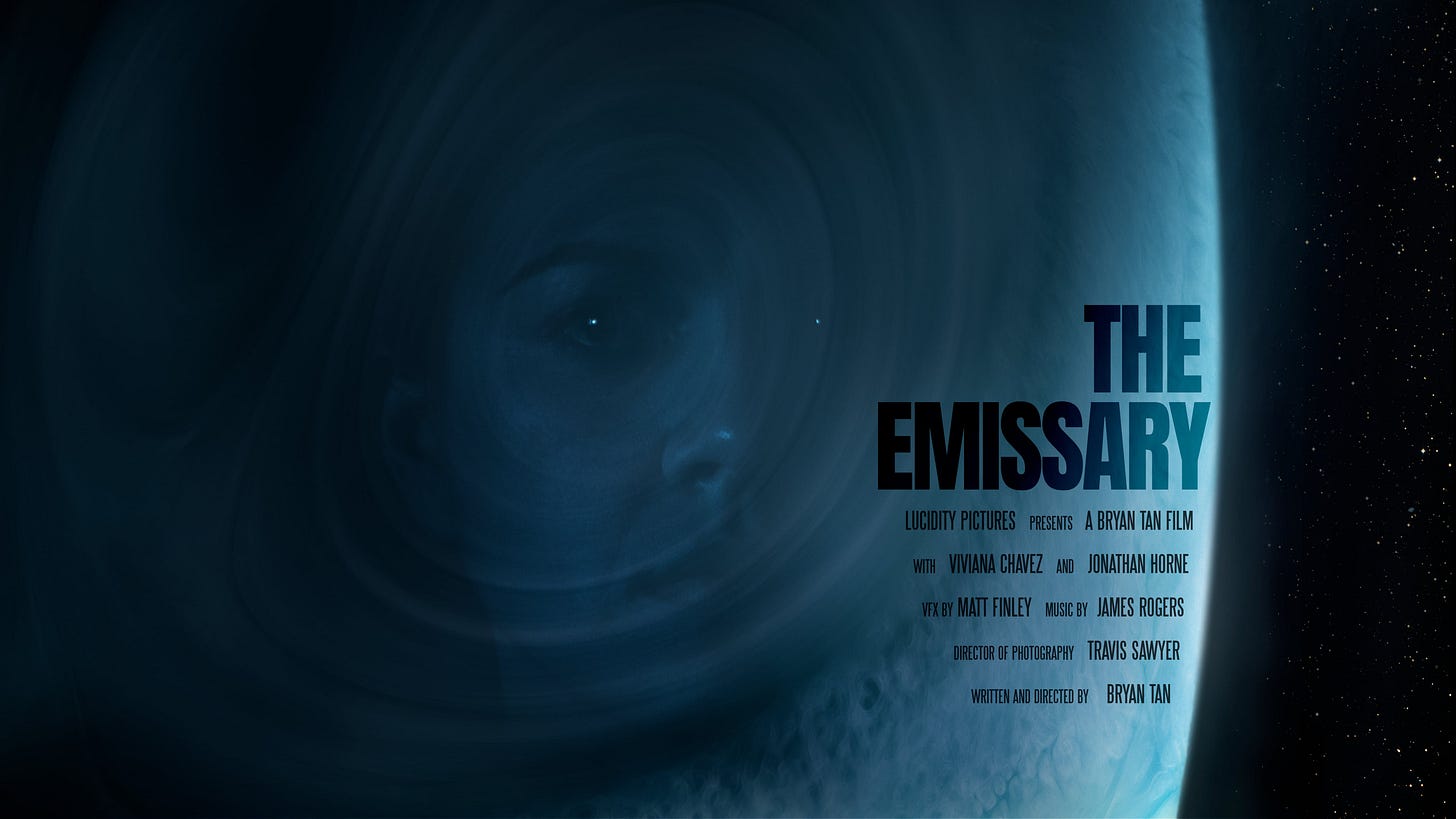Lessons Not Yet Learned
Learning from the comments section + Releasing my first feature film
My film, She Watches Blindly, is out on streaming now.
I’d love for you all here to see it. It’s available now on Vudu, and Hoopla.
If you watch the film, I would love to hear from you in some way. Leave me a review on Letterboxd or IMDB and give the film a star rating wherever you watch it. To quote the youtubers, “it really helps me out,” because distributors and exhibitors, so I am told, actually look at these and use these to help evaluate whether or not they think a film will perform well on their platform.
But beyond garnering reviews for distribution purposes, there are more important reasons as to why I should like to hear from you. If film is a language, then it’s impossible to learn anything without a dialogue.
There is that stage when you must master the tools of the medium, to learn shot design and the technical processes within film, but this is merely like learning grammatical structure in English. Knowing these rules does not mean you are a writer.
I fear that many a modern filmmaker is such a grammarian, content to play with the structure of film, to enjoy its intricacies, and engage in meta-textual play, but they are afraid to confront the actual response their work generates. It is indeed common wisdom to say, “ignore the crowds, don’t read the comments, don’t read reviews.”
However, I am not sure anything has taught me more about filmmaking in the last five years than reading the YouTube comments for my sci-fi short film, The Emissary.

Let’s first make a strong argument for ignoring these comments. Many of these people clearly have missed the point of the film. Connecting with the right audience is very important and should not be underestimated. The comments are far more charitable on The Dust Sci-fi Channel. Looking for comments in only one place may taint your sense of the real reaction to a film. The negative replies on my channel may demonstrate they are simply not right audience for the film. They may be looking for something more of an action-packed Sci-fi thriller, whereas The Emissary was a much more reflective and relational work. Why should we heed their comments when they clearly are not approaching this work properly? It is you who are the artist, not them. You are not beholden to their opinions, nor are you responsible for them. You should not become a people-pleaser and make yourself beholden to the opinions of crowds.
I agree with all of this, and it is always possible to take this line of reasoning as an escape route to avoid grappling with how your work has landed on the people who have actually set aside some time to engage with your creation. But the fact is, for whatever reason, if someone is leaving multiple comments about the scissors your character uses peripherally in several scenes, then you have fallen short of drawing them into your fantasy.
I expect that most artists are lying to themselves and to others when they say that they do not care what others think about their work. This is hardly the case. What they want is for their work to be accepted (and praised) as it stands in its present state, asking of themselves no further transformation.
But there is simply no better metric available to us than the comments of unflattering strangers for understanding what we have actually succeeded in conveying to the audience. The self adulation of film festivals are no replacement for the unfiltered, uncharitable perspective of a viewer sitting in the comfort of their own home, who feel that they are entitled to be thrilled and nothing else. This is the audience we must seek in order to grow.
I am endlessly surprised by what small peripheral details seem to warrant comment, but it matters little what particulars they chose to nitpick and fixate on. These quibbles indicate that the audience is seeing your work for its constituent parts, and are failing to perceive its unity. This is an indication that you have fallen short of your aim.
With a wide enough survey of feedback, raging from trolls, to personal grievances, to praises, a consistent picture emerges. Many people complained specifically about the ending, finding it too open ended.
This was a surprise to me. For I did not see this ending as inconclusive but as a period at the end of a sentence. The door is opened, therefore, conversation is possible and there is hope for reconciliation. What was for me a resolution of catharsis and hope (complete with swelling music) was perceived as a question mark.
For me an open door is a potent symbol, easy to understand. Not so for my commenters, apparently. I could call them mid-wits for missing the obvious, not realizing that I am the mid-wit. For I used my tools, expecting to produce a certain feeling, and instead how people responded was not only beyond my anticipation, but actually contrary to my purposes.
From this I learned that while symbols are undoubtedly important for film, and perhaps for all art, of first importance is the concrete. What actually occurs? It is what actually happens that makes the most memorable impression upon the audience, and from this they will build their understanding of the narrative. A symbol is no replacement in narrative for a concrete event. The symbol is a way of nesting multiple meanings within one another, but you must first have the ground level, and that is, quite simply, what occurs.
It is not that you listen to the comments or that you make apologies to them. Indeed, the error of being too attentive to the comments would certainly be an equal mistep to to ignoring them. You observe them and slowly draw your own conclusions. You must reckon with the response your work has garnered, and whether or not it sits well with you, and with the aims you had set out for the project.
When people ask me what I have learned from making She Watches Blindly, there are many things I could discuss. At present, these are mostly more technical matters of production, or lessons related to business dealings of selling a film. Perhaps those are worth detailing in a subsequent article, but there is little I can comment on with respect to the film’s inherent success or failure at communicating it’s themes, and this is the real matter of concern for a director. Thus I can say that while I have learned much, perhaps the most important lessons still lie ahead.





You have inspired me brother, I want to produce quality cinema. I am from India. I am your FAN :)
It takes a certain amount of courage to examine these comments, from the absurd to the constructive ones. I believe you have gained something of value from this process and will go on to greater creativity.